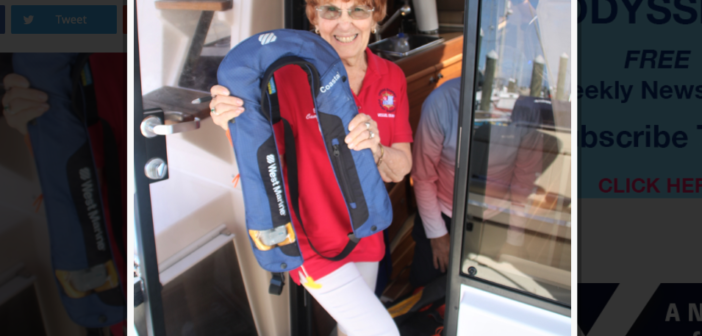Over the years, I’ve been driving boats that have been boarded by the U.S. Coast Guard, the Canadian Coast Guard (on both the Atlantic and Pacific coasts), and once even by the Royal Canadian Mounted Police, who flew overhead in a helicopter and ordered us (via Channel 16) to follow them to the nearest dock in a small fishing village in Nova Scotia. (They suspected us of smuggling drugs, since our new boat had Florida numbers; they started off being very efficient, and ended up, once they determined we were on a recreational cruise up to the St. Lawrence, being very curious and friendly.)
Those were all major boardings, and it helps to have all the required equipment and papers on hand (we always did). And almost always, the people involved were professional and polite. Even the Cuban officials who checked us in at Marina Hemingway near Havana more than 20 years ago were friendly and polite, once we ignored the fact that they were wearing combat boots to board our new Formula 40.
You can avoid any future problems, and make sure your boat is ready for the season, by having a free safety check back at the dock. Here’s some great advice from BoatUS about how to do that:
SPRINGFIELD, Va., April 4, 2023 – How do you know your boat is ready for a safe summer boating season and complies with new U.S. Coast Guard regulations? A no-cost, no-penalty vessel safety check from the U.S. Coast Guard Auxiliary and U.S. Power Squadrons/America’s Boating Club can help. Scheduled inspections are often offered at launch ramps, marinas and boat clubs, or appointments can be made for a vessel examiner to come to your boat. Go to cgaux.org/vsc to learn more. The program is sponsored by the BoatUS Foundation for Boating Safety and Clean Water.
Upon successful completion of the exam, which typically takes less than 30 minutes, the vessel is awarded a U.S. Coast Guard / Auxiliary / U.S. Power Squadrons decal that informs law enforcement and safety agencies that your boat was in full compliance with all federal and state boating laws during a safety check for that year.
So just what items do vessels typically fail on this important early season inspection? According to the U.S. Power Squadrons/America’s Boating Club, the top three reasons are:
- Navigation lights 19%
- Fire extinguishers 18%
- Distress signals 16%
“The numbers tell us a vessel safety check can help owners of every type of boat,” said BoatUS Foundation assistant director of boating safety Ted Sensenbrenner. “Nearly as many ‘open’ type vessels (44%) fail vessel safety checks as much as those with enclosed cabins (47%). A vessel safety check on either type can help a bad day get a lot better, or potentially save a life.”
Boat clubs, marinas, boat yards and municipalities with launch ramps are also encouraged to reach out to their local U.S. Coast Guard Auxiliary or U.S. Power Squadrons/America’s Boating Club to schedule a vessel safety check day at their property.
Read more:
https://www.boatus.com/news-room/release/dont-hit-the-water-this-summer-without-a-no-c




